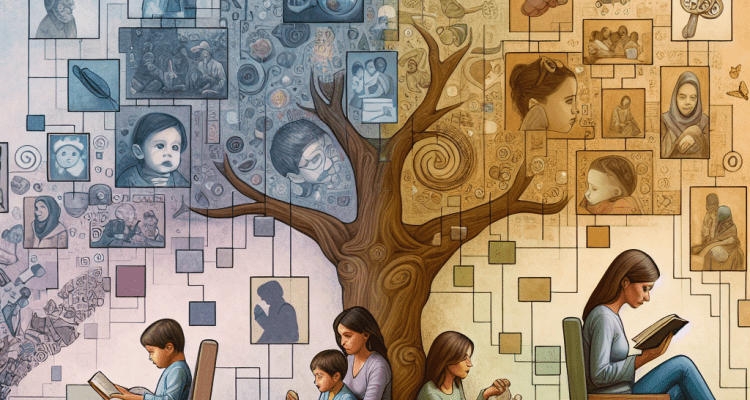The Impact of Childhood Experiences on Adult Intimate Relationships
Have you ever paused to think why certain patterns keep popping up in your romantic relationship? Or why some people seem to handle intimate connections with ease while others struggle? The answer often lies in an area you might not immediately consider: childhood experiences. Whether delightful or devastating, these early moments in life can have a profound and lasting impact on how we navigate adult intimate relationships. Let’s dive into this fascinating subject and uncover some truths. And yes, we’ll sprinkle in some laughter along the way!
Understanding the Foundation: Childhood Experiences
Imagine building a house; the sturdier the foundation, the stronger the house. Childhood experiences function like these foundational blocks, shaping our future relationships and interactions. From family dynamics to societal influences, these early experiences contribute to our emotional toolkit—think of them as the original factory settings of your heart and mind.
The Role of Attachment Styles
One significant factor influenced by childhood experiences is attachment style. The pioneering work of psychologist John Bowlby and later Mary Ainsworth revealed four primary attachment styles:
- Secure
- Anxious-Preoccupied
- Dismissive-Avoidant
- Fearful-Avoidant
These styles develop based on how caregivers responded to your emotional needs during childhood. Your attachment style can significantly affect your approach to intimacy, trust, and emotional closeness in adult relationships. For example, if you grew up feeling secure and loved, you’ll likely carry that confidence into your relationships. Conversely, inconsistent or unresponsive caregiving can lead to less secure attachment styles, making intimate relationships more challenging.
Emotional Baggage: The Unseen Luggage
Have you ever dragged a suitcase filled with old clothes you never wear anymore? Well, childhood experiences can be like that; emotional baggage you unwittingly carry into adulthood. Negative experiences such as neglect, abuse, or even witnessing conflict between parents can deeply affect how you perceive and engage in romantic relationships. It can manifest in forms such as trust issues, emotional withdrawal, or even the opposite—overdependence on your partner for validation.
The Beauty of Positive Experiences
Not all childhood experiences leave you clutching a shabby, worn-out emotional suitcase. Positive experiences, like supportive parenting, stable family relationships, and a nurturing environment, can prepare you to form healthy, happy relationships. You’re equipped with the understanding of healthy boundaries, emotional resilience, and effective communication—basically, the VIP tickets to the concert of love. 🎶
Lessons from the Playground: Social Skills & Peer Relationships
Don’t underestimate the playground lessons! Social interactions with peers during childhood also contribute to your adult relational skills. Learning to share, resolve conflicts, and express emotions with friends and classmates sets the stage for similar interactions in adulthood.
Ever noticed how people who were the “playground peacemakers” often become skilled negotiators in their romantic relationships? Yep, those sandbox diplomacy skills come in handy later in life.
Breaking the Cycle: The Power of Awareness
The good news is that understanding the impact of childhood experiences on adult relationships provides a powerful opportunity for change and growth. Self-awareness is the first step to breaking negative cycles. Whether it’s through therapy, self-help books, or good old-fashioned self-reflection, becoming aware of how your past shapes your present can help you make better choices.
Conclusion: Turning the Page
Our journey from childhood to adulthood is like a storybook where early chapters set the scene for later developments. While you can’t rewrite those initial pages, you certainly have the power to craft the remaining chapters. By acknowledging and understanding the impact of your childhood experiences, you can take active steps toward building healthier, more fulfilling intimate relationships. And remember, every great story needs both laughter and love, so don’t forget to sprinkle in a good dose of humor along the way. 😉
So, here’s to understanding your past and enriching your present. Cheers to the adventure of love and intimacy!
